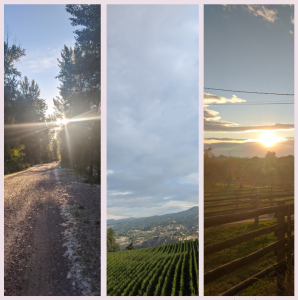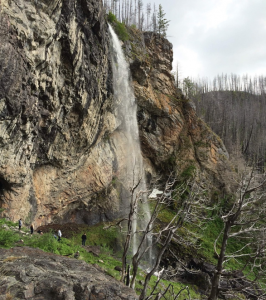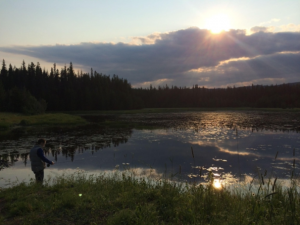Submission to The Social Lens: A Social Work Action Blog by Community of Practice 1 as part of SOWK 550


We are in a time where climate change has become increasingly important to recognize, understand, and respond to on local and global levels. We need to understand and prepare for the ways that our world will change as we move forward. As resources grow scarce and conditions worsen, industries will shift and populations will migrate. This will bring drastic interpersonal, cultural, political, and economic change. These changes disrupt the lives of individuals, families, communities, and organizations where social workers are involved.
The ecosocial approach, also known as green social work, examines the structures of our society and how these systems impact the environment as it relates to social problems and social wellbeing. This approach critiques how economic profit is linked to the misuse of environmental and human resources. Sustainable development and the preservation of natural resources on our planet can lead to social equality, which is at the heart of social work principles. However, we need to be careful in how we enact this change. Any systemic change runs the risk of excluding someone, and it is usually our poorest neighbours who are the ones left behind.

When we discussed green social work as a community of practice, we struggled to find ways to connect environmentalism to our particular demographic. Those in extreme poverty are often focused on their immediate needs, and how they are going to pay next month’s rent or put food on their table to act on the existential dread of environmental anxiety. Increasing temperatures will make both food and water increasingly difficult to come by in the long run, and impoverished groups will be the hardest hit by this development, and so their long-term needs are imbued in the environmental struggle. However, if a client is starving now, social work needs to alleviate that suffering.




Self-care, nature, and our environment are also significant to ponder. We tend to forget or overlook the link between nature and self-care. We are caught up in the hustle and bustle of, for example, being overworked, meeting constant deadlines, enduring societal pressures, and making money. In Western society, social media tends to place significant value on acquiring more money, vacations and luxury items, and displaying our material goods for all to see. Sometimes we get lost in the never-ending stress and pressures and we forget to be in touch with our basic instincts and to truly appreciate the nature that surrounds us, and to use it to take care of our wellbeing.
What COVID-19 has taught many is to take a step back and appreciate what is in front of us. While many are enduring significant tragedies during the pandemic, it has also shown us that we as humans do not run the world. We are just a small feature of the bigger picture. The earth that we live on is a privilege. If our earth is destroyed, we will cease to exist. We need to appreciate and take care of what we have because if we continue to taint and pollute this earth, we will not have this space for our grandchildren and their children in the years to come. Nature is healing, and it is one of the best forms of self-care.


The following initiatives demonstrate collective action towards consciousness-raising and social change to address the environmental needs of those living in poverty:
- Activists/board members of the Downtown Eastside Women’s Centre applying for permit for heated outdoor patio spaces for clients to gather over winter
- VanPlay, created by the Board of Parks and Recreation, explores which areas have the least equitable access to green spaces in response to increased demand due to COVID-19
- Downtown Eastside Neighbourhood House’s urban farm provides an accessible green space for community members to gather and garden
- Hogan’s Alley Society honours the contributions of the Black community displaced during the construction of the Georgia viaducts
The Social Lens: A Social Work Action Blog - The views and opinions expressed in this blog are solely those of the original author(s) and do not express the views of the UBC School of Social Work and/or the other contributors to the blog. The blog aims to uphold the School's values and mission.

